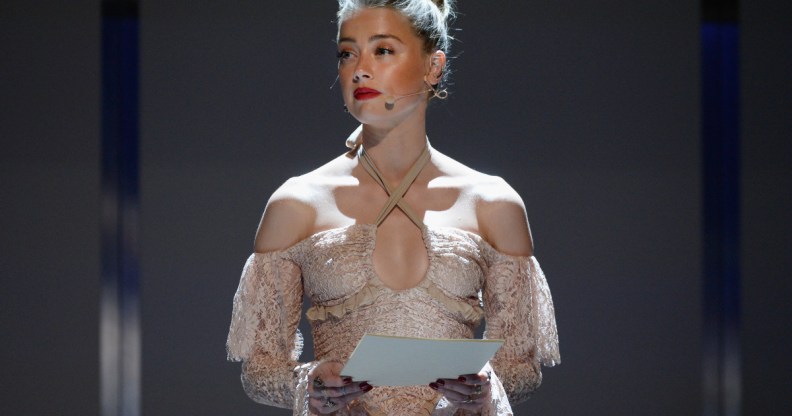Amber Heard talks of overcoming ‘obsession’ with bisexual label in film industry

Amber Heard has talked about her bisexuality and prejudices she faced in the film industry.
The star has been open about her bisexuality and past relationships with women.
Speaking at the Pride and Prejudice event held by the Economist, she says she became “attached” to the label bisexual.
“Then I realised the gravity of what I had done and why so many people-studio execs, agents, advisors-did not want this coming before my name,” The Danish Girl star said.
“I became attached to a label. I’ve never seen myself defined by the person I’m with.”
Going on, Heard said she felt castings were affected by the label, saying people worried whether audiences would “invest” in her if she appeared somehow “unavailable.”
But she said she had no desire to keep her sexual orientation hidden, saying: “I saw myself being in this unique position and having a unique responsibility. So, I bit the bullet,”
“If every gay man that I know personally in Hollywood came out tomorrow, then this would be a non-issue in a month,” she added.
Last year she reached reaches out to domestic violence survivors in a new PSA and opened up about her own experience with abuse.
Created in conjunction with the GirlGaze project, the short video features actor Heard making a PSA to domestic violence victims to speak up and seek out help.
However, the 30-year-old finalised her divorce with Depp amid allegations of domestic abuse and donated the whole of the $7 million divorce settlement to charity.
The clip was released on International Day for the Elimination of Violence Against Women.
“How is this happening to me? I’m strong. I’m smart. I’m not a victim,” Heard starts off.
“There’s lot of shame attached. It happens to so many women and when it happens in your home behind closed doors with someone you love it’s not straight forward.
“It was pointed out to me that if a stranger did this it wouldn’t be ok.
“Telling someone safe is the beginning of choosing yourself. I went through it in the public arena and I have a unique opportunity to tell women you’re not alone.”
Heard went on to ask the media to reconsider the way it addresses domestic violence.
“It’s about how we deal with it and how we talk about it in the media. We need to take responsibility for how we talk about these things.”
She finishes off the video with a final ditch attempt at persuading victims of domestic violence to speak up.
“Speak up. Raise your voice. Your voice is the most powerful thing.”

